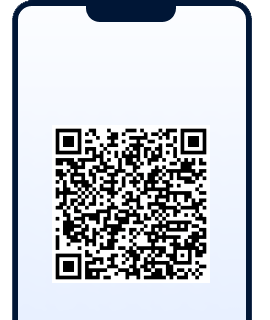 IST,
IST,


Procedure for Collection of Taxes at Bank Branches - Customer Service
RBI/2004/135
DGBA.GAD.No.1142 /42.01.001/2003-04
April 2, 2004
The Chief Executive Officer
All Agency
Banks (as per list)
Dear Sir,
Procedure for Collection of Taxes at Bank Branches - Customer Service
Please refer to "Accounting System for Direct Taxes" (Pink Booklet) wherein detailed instructions were laid down for collection and accounting of Income and other Direct Taxes and payments of Income Tax Refund Orders (ITROs) by the branches of Public Sector Banks. It is observed that although procedure for collection of tax has been explained in detail, some bank branches do not follow the same meticulously. With a view to improving customer service in this regard, we specifically draw your attention to the following aspects :
(i) Issue of Token : While instructions issued by Reserve Bank are quite clear regarding the issue of paper token as an acknowledgement of payments, it is observed that a large number of authorised branches do not issue such tokens. In many places, there are informal arrangements wherein the taxpayer is asked to collect the challan after a specific date from the bank branches. In some cases, the receipted challans are not kept securely and are placed in an open box. The customers are allowed to freely pick up their challans without any identification. Such a practice is most objectionable. In this connection, your attention is drawn to our Circular DGBA.GAD.No.H-68A/42.02.001/2003-04 dated July 29, 2003 reiterating the procedure to be followed in the case of receipted challans. As you are aware, in the case of challans deposited with cheque or draft, the receipted challans will be issued only on realisation of the amount of cheque or draft and hence the paper token should indicate the date on which the receipted copies of the challans would be kept ready so that the assessee makes an arrangement to collect the receipted challan on the date given in the token.
(ii) Receipted Challan : The receipted challan should be made available to the assessee within 4-5 days, based on the local Clearing arrangements. The branches should ensure that this stipulated waiting period must not be exceeded and any deviation in this regard will be viewed seriously by Reserve Bank. The receipted challans should be handled with care and in a secure manner till they are handed over to the assessees across the counter on presentation of the relevant paper token. Under no circumstance, the receipted challan should be kept in open box accessible to customers.
(iii) Double Date Stamp on Receipted Challan : We reiterate that the challan should bear two dates i.e. the 'Date of tender' of challans and instruments and the 'Date of realisation' of proceeds of the instruments as specified in Annexure-V of the Pink Booklet.
(iv) Acceptance of Clearing Cheques : It is observed that some of the banks are reluctant to accept cheques drawn on other banks while receiving taxes resulting in practice of Chartered Accountants/Tax Consultants tendering their own cheques on behalf of their clients. As accepting cheques drawn on other banks will greatly facilitate the customers, banks are advised not to turn back customers who tender challans with cheques drawn on other banks.
(v) Do's and Don’ts : A list of Do's and Don'ts as given in the Annexure-IV of the Pink Booklet were not being supplied to the bank staff dealing with the Direct Tax collection work as required. You are advised to do the needful and submit compliance in this regard.
2. As you are aware, your bank is acting as the agent of Reserve Bank for conduct of Government Business. For doing so, Reserve Bank is compensating your bank by way of payment of Turnover Commission. It is, therefore, incumbent on your branches to follow the procedures set out by us and render good customer service. We request you to advise your authorised branches to follow the instructions contained in our various Memoranda/Circulars issued from time to time and ensure that tax payers are not inconvenienced in the payment of taxes.
3. We advise that failure to observe the prescribed procedures and guidelines would render the concerned branch liable for de-authorisation or such other penalties as the Reserve Bank may deem fit.
4. Please acknowledge receipt.
Yours sincerely,
sd/-
(Prabal
Sen)
Chief General Manager
ପେଜ୍ ଅନ୍ତିମ ଅପଡେଟ୍ ହୋଇଛି:

















